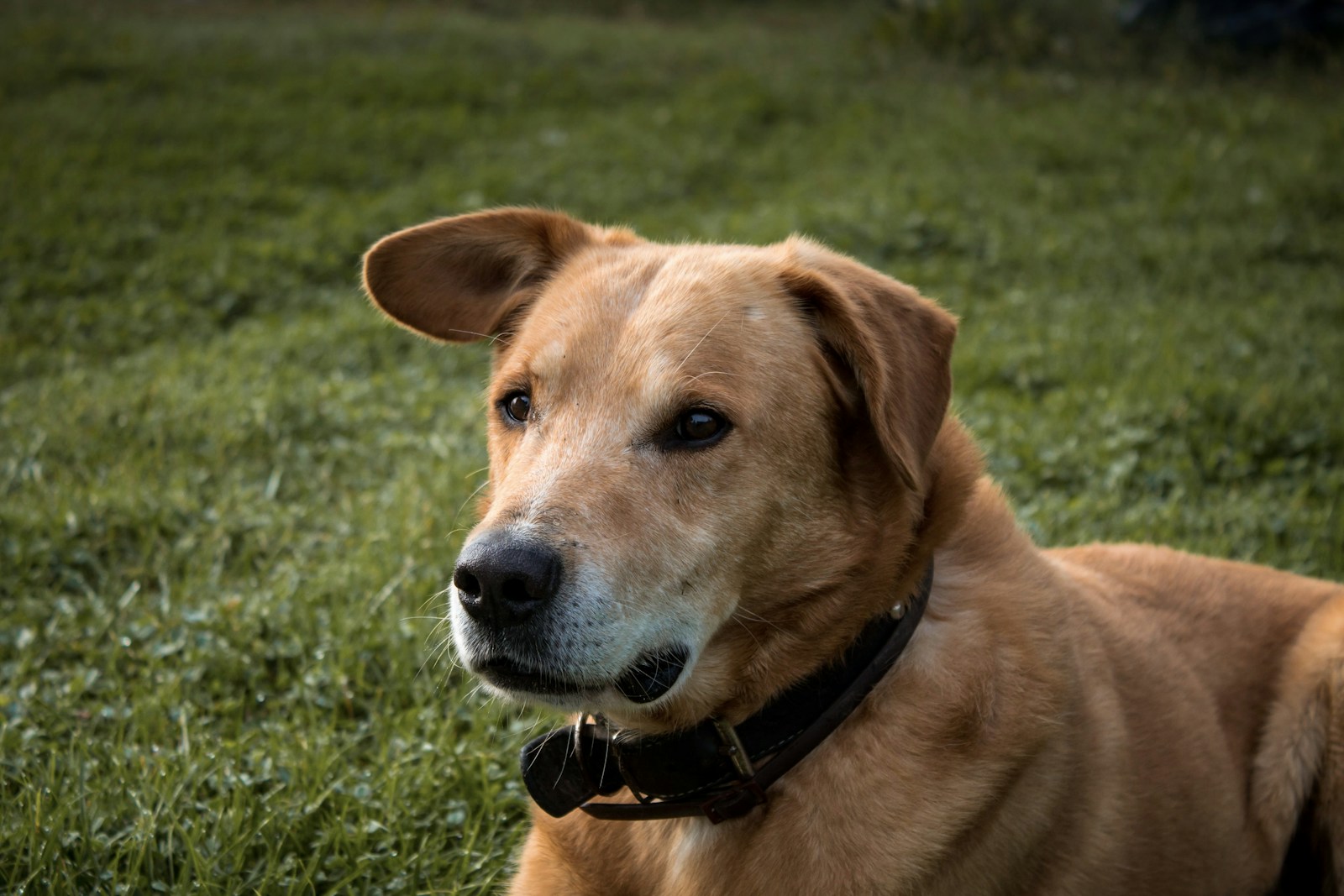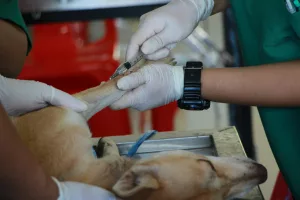Dogs eating grass is a behavior that has puzzled pet owners for generations. Whether your dog is nibbling on the lawn during a walk or chomping down on long blades in the backyard, many dog owners wonder why their pets exhibit this seemingly strange habit. While eating grass is common in dogs, the reasons behind it can vary, ranging from instinctual behaviors to potential health issues. In this article, we explore the various explanations for why dogs eat grass, whether it’s something to be concerned about, and how to manage this behavior.
Is Eating Grass Normal for Dogs?
First and foremost, it’s important to understand that grass-eating is a fairly normal behavior for dogs. In fact, many veterinarians consider it a common canine habit that, in most cases, is harmless. Studies have shown that a significant percentage of dogs occasionally eat grass, even those that are well-fed and healthy.
Should You Be Concerned?
For most dogs, occasional grass-eating is not harmful. However, if your dog frequently consumes large amounts of grass, especially if it’s accompanied by vomiting, diarrhea, or other signs of illness, it’s worth investigating further. In most cases, though, grass-eating is a natural behavior that doesn’t indicate a serious health problem.
Why Do Dogs Eat Grass? Common Explanations
While dogs can’t tell us why they eat grass, there are several theories that explain this behavior. These theories range from natural instincts to digestive issues and dietary needs. Below are some of the most common explanations for why dogs eat grass.
1. Instinctual Behavior from Wild Ancestors
One of the most widely accepted theories is that grass-eating is a remnant of dogs’ wild ancestors. In the wild, canines such as wolves and foxes consume the entire body of their prey, including the stomach contents, which often contain plant matter. As a result, dogs may instinctively eat grass as a way to mimic the varied diet of their wild ancestors. Even though modern domestic dogs have different diets, the instinct to consume plant material may persist.
2. Fiber and Nutritional Needs
Some dogs may eat grass as a way to supplement their diets with fiber. Grass contains fiber that can help with digestion, regulate bowel movements, and promote overall gastrointestinal health. Dogs that are not getting enough fiber in their regular diet may turn to grass as a natural source of roughage.
3. Soothing Digestive Upset
One of the most commonly cited reasons for grass-eating is that dogs do it to soothe digestive discomfort or induce vomiting. Some dogs eat grass when they feel nauseous, and the rough texture of the grass can irritate their stomach lining, triggering vomiting. This is thought to be a self-medicating behavior that helps the dog get rid of something that’s causing stomach upset, such as spoiled food or other irritants.
4. Boredom or Lack of Stimulation
Dogs, especially those left alone for extended periods or those with limited mental and physical stimulation, may eat grass out of boredom. If a dog is not getting enough exercise, playtime, or engagement, it may resort to chewing on grass simply as a way to pass the time. This behavior is similar to how some dogs chew on furniture, dig excessively, or engage in other destructive activities when they’re bored.
5. Enjoyment and Taste
Some dogs may simply enjoy the taste and texture of grass. The act of chewing on fresh, crisp grass can be pleasurable for some dogs, much like how they enjoy certain chew toys or treats. Different dogs have different preferences, and for some, grass may just be another enjoyable snack.
6. Attention-Seeking Behavior
In some cases, dogs may eat grass to get attention. If a dog learns that grass-eating leads to a reaction from its owner—such as being scolded, chased, or redirected—it might repeat the behavior to elicit attention, even if that attention is negative. Dogs are social animals, and any interaction, even if it’s corrective, can be rewarding for them.
7. Natural Foraging Instincts
Dogs are scavengers by nature, and even domesticated dogs still have strong foraging instincts. Grass-eating could be an extension of this foraging behavior, where the dog explores its environment by tasting various plants and objects. This is especially true in puppies and younger dogs who are naturally curious and inclined to explore their surroundings with their mouths.
8. Managing Anxiety or Stress
Dogs that are anxious or stressed may turn to repetitive behaviors like eating grass as a way to cope. Just like how some dogs lick themselves excessively or engage in compulsive behaviors when stressed, grass-eating can be a way for them to soothe themselves. If your dog’s grass-eating seems to increase during times of stress or change, anxiety could be a contributing factor.
Should You Let Your Dog Eat Grass?
In most cases, allowing your dog to eat small amounts of grass is perfectly fine. However, there are some important considerations to keep in mind:
- Pesticides and Chemicals: Make sure the grass your dog is eating is free from harmful chemicals, pesticides, or herbicides, which can be toxic.
- Potential Toxic Plants: Some plants that may grow alongside grass can be toxic to dogs. It’s important to ensure your dog isn’t ingesting anything harmful.
- Gastrointestinal Upset: While occasional vomiting after eating grass is not uncommon, if your dog vomits frequently or shows signs of distress, consult your veterinarian.
How to Manage or Reduce Grass-Eating
If you’re concerned about your dog’s grass-eating habit or if it becomes excessive, there are steps you can take to manage or reduce the behavior:
1. Provide a Balanced Diet
Ensure your dog is receiving a balanced diet that includes sufficient fiber and all the essential nutrients. A well-rounded diet can help reduce the likelihood of your dog seeking out additional sources of roughage like grass.
2. Increase Mental and Physical Stimulation
Boredom is a common cause of grass-eating, so it’s important to provide plenty of physical exercise and mental stimulation. Regular walks, play sessions, interactive toys, and training exercises can help keep your dog engaged and reduce the need for boredom-driven behaviors.
3. Distract and Redirect
If you catch your dog eating grass, try to redirect its attention to something more appropriate, like a toy or a game. Training the “leave it” or “come” command can be helpful in distracting your dog from grass-eating.
4. Monitor for Underlying Health Issues
If your dog’s grass-eating is frequent, consult with your veterinarian to rule out any underlying health issues, such as gastrointestinal problems or nutritional deficiencies. Addressing any health concerns can help reduce the behavior.
5. Provide Safe Alternatives
Some dogs enjoy the texture and taste of grass. If this is the case, consider providing dog-safe plants or grasses that your dog can nibble on safely. You can grow certain types of edible grasses at home, such as wheatgrass, specifically for your dog to enjoy.
When to See a Veterinarian
While grass-eating is usually harmless, there are situations where you should consult a veterinarian:
- Frequent Vomiting: If your dog vomits frequently after eating grass, it could be a sign of an underlying gastrointestinal issue.
- Changes in Appetite or Behavior: Sudden changes in your dog’s appetite, energy levels, or behavior, especially if accompanied by grass-eating, should prompt a visit to the vet. These symptoms could indicate digestive problems, parasites, or other health issues that need to be addressed.
- Excessive Grass-Eating: If your dog is compulsively eating large amounts of grass, it could point to a more serious issue, such as anxiety, dietary deficiencies, or gastrointestinal distress. In such cases, it’s important to get a professional assessment to determine the underlying cause.
- Persistent Diarrhea or Weight Loss: If your dog is eating grass and experiencing ongoing diarrhea, weight loss, or signs of discomfort, this could be indicative of a more severe health issue that requires veterinary care.
Understanding and Embracing Natural Dog Behaviors
It’s important to remember that eating grass is a natural behavior for many dogs. While it may seem strange from a human perspective, for dogs, it’s often part of their instinctual foraging habits or a natural response to their body’s needs. Rather than immediately discouraging the behavior, it’s useful to first observe how your dog interacts with grass and whether there are any signs that it could be related to an underlying health or behavioral concern.
Embracing Safe Grass-Eating
If your dog occasionally eats grass without any negative side effects, you can consider allowing this behavior as long as the grass is free from harmful chemicals and toxic plants. In some cases, dogs may even gain minor digestive benefits from consuming grass, especially if they’re looking for extra fiber or seeking a mild digestive aid.
Conclusion
Dogs eat grass for a variety of reasons, ranging from instinctual behaviors passed down from their wild ancestors to dietary needs and boredom. While grass-eating is generally harmless, it’s important for dog owners to monitor the behavior to ensure it doesn’t indicate an underlying health problem. Most of the time, grass-eating is a natural and normal activity for dogs, and understanding the root causes can help pet owners manage it effectively.
If your dog’s grass-eating is causing concern, consider taking steps to address potential dietary deficiencies, increase mental and physical stimulation, and provide safe alternatives. By observing your dog’s behavior and working with your veterinarian when necessary, you can ensure that your furry friend remains healthy and happy while engaging in their natural behaviors.




